|
M. FORD CREECH ANTIQUES & FINE ARTS
EARLY 19TH CENTURY CARVED TREEN WELSH 'LOVE SPOON'
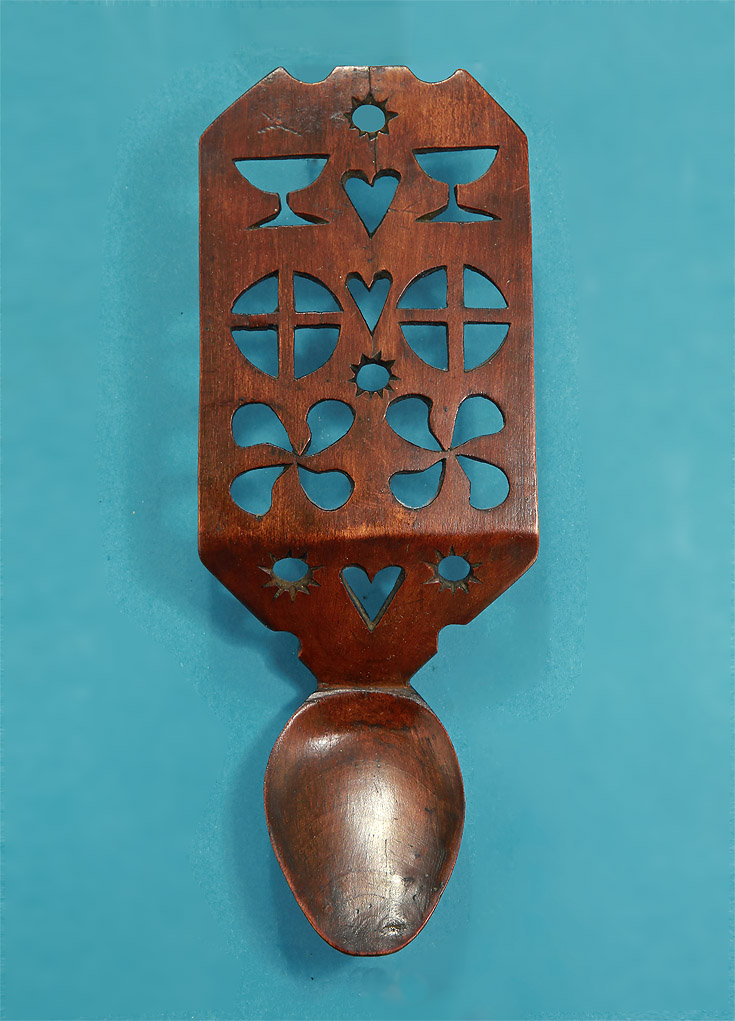
|
|
Of sycamore or fruitwood, the broad rectangular handle notched to the upper edge and tapered base,
and pierced with 2 wine glasses, 3 hearts, 4 stars (or suns), 2 windows or wheels,
and 8 commas arranged as 2 quatrefoils,
above a spade shaped bowl, the spade bowl meaning "I will work for you".
The earliest surviving Welsh love spoon dates c1667, now in the Welsh Folk Museum in Cardiff.
However the tradition of giving love spoons probably far predates that time.
According to folklore, these ornate "cawl" (soup) spoons were traditionally carved from
a single piece of wood (usually sycamore or fruitwood) with a pocket knife by young men -
particularly 'shy young men' –
to show affection and intentions for their loved ones.
The spoon would be presented to a young lady as a prelude to courtship. If she accepted the spoon,
it would be hung with ribbon on a wall beside the fire... and the wooing could proceed.
Each love spoon is unique, created by one suitor for his particular 'intended'.
The known symbols featured on this spoon are as follows :
Hearts : The universal symbol of love; a sign of passion and strong emotion,
signifying the carver's depth of feeling for his beloved.
Comma or paisley shape : Said to represent the "soul" and deep affection.
Wheels : A vow by the carver to work hard to support and to guide a loved one through life.
(These are also referred to as "windows", representing a home).
Quite often, these spoons fall to the floor, giving them bits of damage –
which personal history only endears them the more.
For further references on Welsh Love Spoons,
see p.158-164, Treen & Other Wooden Bygones, Edward Pinto,1969
(reprints, 1976, 1979)
Condition : Two narrow stable shrinkage cracks, one to the upper panel, the other at the base of the panel;
repair to one cross member of the upper left wheel
7.5" High / 3" Wide
PRICE : Please Inquire
#8047
|
|
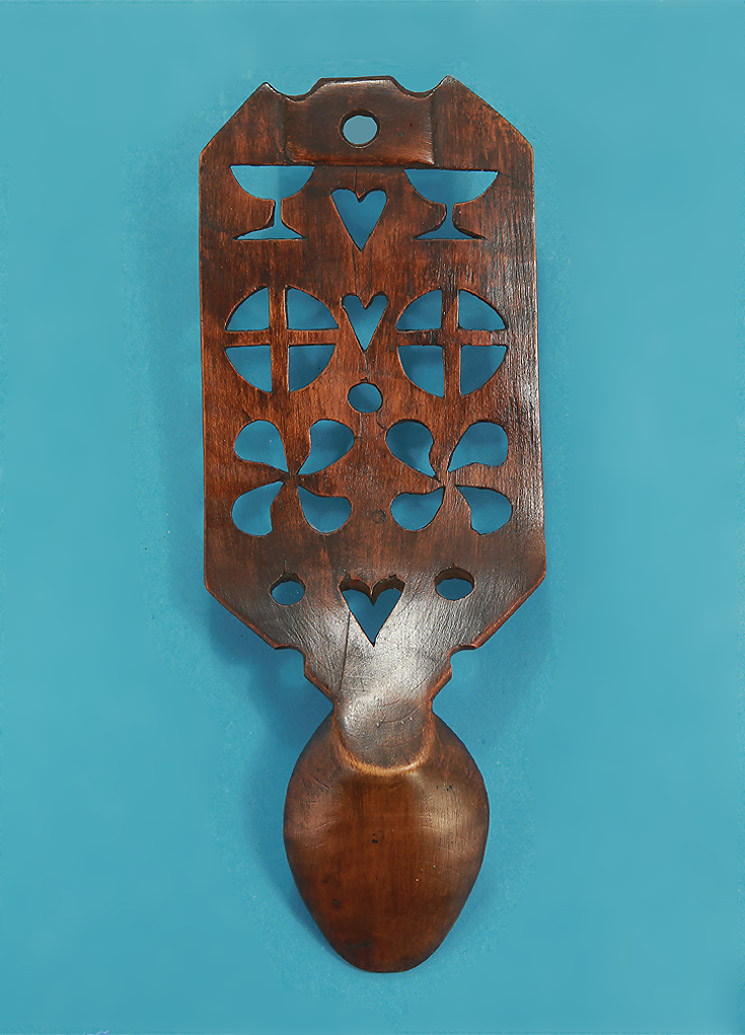
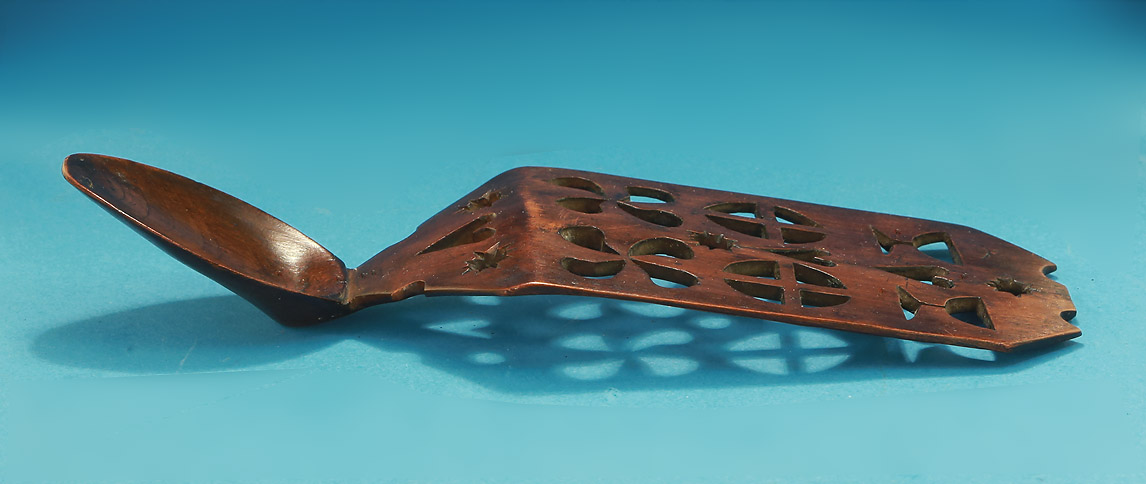
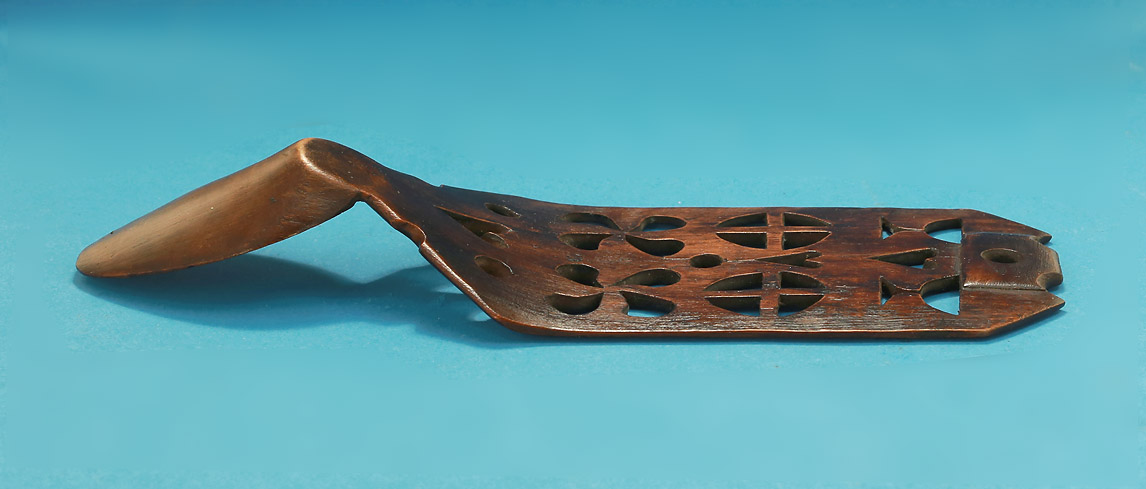
Also See :
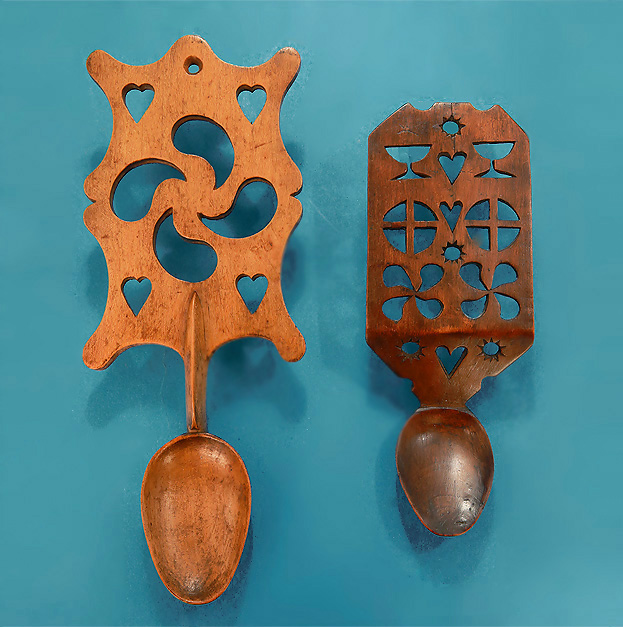
Two 19th Century Welsh 'Love Spoons'
The left example : 19th Century Treen Love Spoon,
carved with Hearts and Commas (soul, deep affection), 10.25" Long
The right example : Early 19th Century Treen Love Spoon
carved with Hearts, Commas, Champagne Glasses, and Wheels
wheels (lifetime support) and spade bowl (I will work for you), 7.25" Long
and
Visit the Third Catalog in Our 2023 Christmas Series :
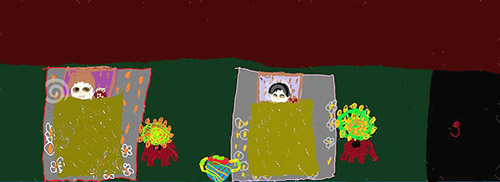
Christmas :"Don't Open 'til December 25th"
We welcome and encourage
all inquiries regarding our stock. We will make every attempt to answer any questions you might
have.
For
information, call (901) 761-1163 or (901) 827-4668,
or
Email : mfcreech@bellsouth.net or mfordcreech@gmail.com
American Express, Mastercard, Visa and Discover accepted

 
M. Ford Creech Antiques & Fine Arts / 581
South Perkins Road / Memphis,
TN 38117 / USA /
Wed.-Sat. 11-6, or by appointment
|





